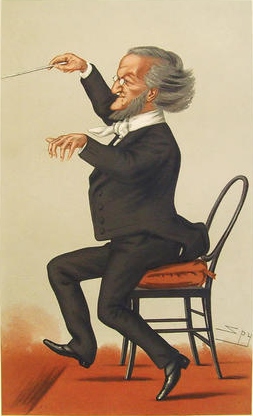Search results for "2010/02/let-us-eat-cake"
Wo/men at war
9 February 2012 | Essays, Non-fiction
 The wars that Finland fought 70 years and a couple of generations ago continue to be a subject of fiction. Last year saw the appearance of three novels set during the years of the Continuation War (1941–44), written by Marja-Liisa Heino, Katja Kettu and Jenni Linturi
The wars that Finland fought 70 years and a couple of generations ago continue to be a subject of fiction. Last year saw the appearance of three novels set during the years of the Continuation War (1941–44), written by Marja-Liisa Heino, Katja Kettu and Jenni Linturi
In reviews of Finnish books published this past autumn, young women writers’ portraits of war were pigeonholed time and again as a ‘category’ of their own. This gendered observation has been a source of annoyance to the writers themselves.
Jenni Linturi, for instance, refused to ruminate on the impact of her sex on her debut novel Isänmaan tähden (‘For the fatherland’, Teos), which describes the war through the Waffen-SS Finnish volunteer units and the men who joined them [1,200 Finnish soldiers were recruited in 1941, and they formed a battalion, Finnische Freiwilligen Battaillon der Waffen-SS].
The work received a well-deserved Finlandia Prize nomination. Tiring of questions from the press about ‘young women and war’, Linturi (born 1979) was moved to speculate that some critics’ praise had been misapplied due to her sex. The situation is an apt reflection of the waves of modern feminism and the reasoning of the so-called third generation of feminists, who reject gender-limited points of view on principle. More…
Cause of death
30 June 1999 | Archives online, Fiction, Prose
A short story from Åtta kroppar (‘Eight bodies’, Söderströms, 1998). Introduction by Ann-Christine Snickars
It was a bailer, a blue one. There they were, he, she, the bailer and a stormtossed net on the stern board of a hired boat. The boat had come with the cottage and the cottage with ‘Autumn archipelago package. Now nature is aglow.’
And it was aglow.
Masses of foliage and apples, damson and shiny russula spread out around them in all their glory. It happened everywhere, that glowing. Wherever one turned one’s gaze there was something ready to be picked or ready to fall, ready in general. Those first days they had, at least to each other, she to him, feigned enthusiasm about all this ripe richness, but that time was over.
Their time of fire and flames was over. More…
Father
31 December 1980 | Archives online, Fiction, Prose
An excerpt from Laturi (‘The explosives expert’, 1979). Introduction by Pekka Tarkka
“It only took one good bash!” With tears in his eyes, chuckling and spluttering, Korppi, the sentimentalist, told the story of Linda’s love affair. Korppi hadn’t been an old codger then; like Chekov’s Versinin, he could have been dubbed the love-lorn major, although he was only a lieutenant for he had loved little Linda when he had been an officer guarding the refugees interned on Suursaari: interned not for their safety but for the protection of his country. “She loved getting parcels, oh yes, but she didn’t give a damn for me! And did I take what belonged to me?
Yes! No! I nibbled here and there but I never swallowed a whole bite … On the other hand, there were some who took a bite and swallowed it, one of them was called …”
“Selim!” shouted Enver.
Selim, that jelly. He was Korppi’s subordinate on guard duty, and had he known the other fellow had been flirting with Linda he would have killed her! But how could he have known? What took place under a clump of hills along a wooded lake shore… More…
Living inside language
23 February 2010 | Essays, Non-fiction
Jyrki Kiiskinen sets out on a journey through seven collections of poetry that appeared in 2009. Exploring history, verbal imagery and the limits of language, these poems speak – ironically or in earnest – about landscapes, love and metamorphoses
The landscape of words is in constant motion, like a runner speeding through a sweep of countryside or an eye scaling the hills of Andalucia.
The proportions of the panorama start to shift so that sharp-edged leaves suddenly form small lakeside scenes; a harbour dissolves into a sheet of white paper or another era entirely. Holes and different layers of events begin to appear in the poems. Within each image, another image is already taking shape; sensory experiences develop into concepts, and the text progresses in a series of metamorphoses. More…
Poems
30 June 1982 | Archives online, Fiction, poetry
Sirkka Turkka is among the most important poets who started their work in the 1970s. So far she has published five collections of poetry and one work in prose. ‘I speak of death when I mean to speak of life,’ writes Sirkka Turkka in one of the poems in her collection Mies joka rakasti vaimoaan liikaa (‘The man who loved his wife too much’, 1979). The theme of death is close at hand, too, in the previously unpublished poems printed below. Introduction by Arto Kytöhonka
1
Before death itself comes
it paints the pine boles red
around this house
It erects a moon in the sky, a luminous moon,
set on edge like an old dish
with the light enamel peeling off.
Onto this house, over which
night is now pleating.
And the house, in the veering waters, in the clinging waters,
is slowly preparing itself, quite by itself, for death. More…
Like father, like daughter
31 March 1999 | Archives online, Fiction, Prose
Extracts from Tom Tom Tom (Gummerus, 1998). Introduction by Soila Lehtonen
A father and daughter in a hospital back garden
Bits of nail flick to the ground as Kokko cuts Tom’s nails, leaving rather brittle nail-ends among the lichen. In the middle of the hospital afternoon they’ve made their way down to the little park, to care for the hands of both of them, all four.
In the days before Africa Tom used to nurse Kokko on the living-room sofa and cut the nails on her most difficult hand, pushed the cuticles back and taught her the care that ought to be taken of nails, or she’d have smarting and pain round the cuticles. Kokko used to plead to be taken into his nail cutting lap oftener than she should, even when she’d really have preferred to grow longer nails. More…
Elitist versus pop?
8 August 2013 | Letter from the Editors

An elitist of his time? A caricature of Richard Wagner by Leslie Ward, published in Vanity Fair in 1877 (caption read ‘The Music of the Future’). Picture: Wikimedia
The old phrase ‘art for art’s sake’ has begun to sound like an appeal instead of an bohemian creed, without any negative ambiguity. Please let art be created for art’s sake!
In our times of neo-liberal ideologies, the criteria for assessing art include its capacity to generate profits to creative industries, to have export value, to be of assistance to business in general. But art, in essence, serves no ideology.
Technology now allows us to be more entertained than ever before, if we so choose. Art and entertainment alike come to us by the use of various devices. What has often been called ‘elitist’ art – opera, modern music, ballet – can be enjoyed lying on the sofa in the home. Money is not an obstacle.
Art, too needs money, of course: orchestras, theatres, training of artists and artists themselves need subsidies from society. Entertainment is by nature profitable business, as it attracts and involves large paying audiences. Smaller audiences want to listen to classical music, read books and see films that are not made solely in order to bring in as much money as possible. But why should these forms of art be called ‘elitist’? More…
Mickeys
31 December 1987 | Archives online, Fiction, Prose
Maskuja (‘Mickeys’, WSOY, 1987). Introduction by Erkka Lehtola
When I was on a trip with my friend and there was a wide enough bed in the southern night for the two of us to sleep easily side by side, it was a big shock when, even so, I sprang up suddenly at midnight, and my friend did too, and there was a thud as our heads banged together and we saw stars, and in the morning no one could understand why we were so stupefied.
Micky ran to the barber’s. ‘Are you free? Could you do something with my hair?’ He took his cap off. ‘Look, all the hairs are loose at the other end.’
Once, out of sheer absent-mindedness, he was officiously helping someone onto a tram from behind; he grabbed their bottom, got a furious look, and spluttered,’ Sorry, but I thought it was your bag.’ More…
Among the ice floes
30 September 1985 | Archives online, Fiction, Prose

Alpo Ruuth. Photo: Sakari Majantie / Tammi
Alpo Ruuth came across the diary of a member of the Finnish crew of ten men in the Whitbread Round-the-World sailboat race of 1981-1982, and Ruuth, a sailor himself, used that diary as the basis for his novel, 158 vuorokautta (‘158 days’, 1983). It is the story of a great adventure which takes place with the help of ultra-modern equipment and yet involves confrontation with elemental nature, the dangerous power of the southern seas. Ruuth does not use the actual names of the crew, but has taken the view of the fictional crew member who is able to offer ironic comments on what he observes. The book portrays the relationships among the crew under the cramped and difficult conditions of the long voyage. As the extract begins the yacht is in the Southern Ocean, close to the Antarctic coast, making its way towards Auckland, New Zealand.
An extract from 158 vuorokautta (‘158 days’)
Around noon we run into a blizzard. On deck they shout down that a wind has got up. Below, we wake hurriedly from our afternoon naps and start pulling on clothes against the tough weather outside. It’s quite a business in our cramped quarters, and every now and then someone loses his footing and falls as the boat pitches. Cursing is the only medicine for bruises. One by one the boys go up to help change sails; at the bottom of the steps there are excesses of politeness: after you, sir; no no, after you. Up they go, all the same. More…
Jingle-bells
30 September 1992 | Archives online, Fiction, Prose
An extract from Täällä Pohjantähden alla (‘Here beneath the North Star’), part one, chapter five. Introduction by Pekka Tarkka
Tähti, the rectory’s black carriage-horse, trotted from croft to croft, flashing his white spats. In the sledge, behind the driver, was the rector’s wife, wearing her husband’s heavy fur coat and sitting up very straight.
She began at Koskela. Jussi had finished his rent-work for the week, so she had to drive out to the croft. The little sleigh-bells tinkled so prettily that the boys overcame their shyness and came outside to marvel. These were quite unlike the simple, tinny ‘jingles’ that the old crofters had on their sledges: there was a whole row of bells attached to each half of the smart leather harness-saddle, and they sang out pleasantly and musically every time the highly-strung thoroughbred moved or even quivered. Vilppu could hardly claim to belong to the same species as this splendid creature. The boys had never before seen Tähti at such close quarters. He had wonderful blue-black eyes, and a soft pink muzzle. More…
Taken by surprise
In her fifth collection of poems, Pauliina Haasjoki explores night flights, water, islands, sandy beaches where time is found stratified in stones and fossils. Interview by Teemu Manninen
Poems from Aallonmurtaja (‘Breakwater’, Otava, 2011)
Night flight
Man cannot hide in the night, his desire will betray him.
Man turns toward the lights, light sparkles as though it were close at hand
even if it is far away.
Lights, which offer themselves like jewels to the one who sits in the plane above them, are already
in their viewers’
eyes even if they have only just begun to stream from their source. A city-jewel swaying
in the black night air.
A solitary light on the surface of an island. Seen close up it is a soft-lit lamp
which casts light only on the table and the faces around it,
but from above, at a distance of kilometres, it is an immediate spot, a straight line that
aims at the viewer
and pierces her. A fierce light-beam.
Poems
31 March 1980 | Archives online, Fiction, poetry
Poems from Kallista on ja halvalla menee (‘It comes dear and it’s going cheap’,1975) and Reviirilaulu (‘Territorial song’, 1978). Introduction by Pentti Saaritsa
1
A seagull shadow flitters across the gulf of the courtyard
over the gone-sour yellow wall
ogreish and swift as an execution by hanging,
that’s how I’m dangling
from this moment in this city
my ankle in the strangling noose
in the night under the jangling stars while over the roofs
a sheetmetal moon’s rising
and blurred dreams are yawning in a thousand windows,
down below me the city
and in my breast my heart, it’s socking
like a knuckleduster.
2
The simplest noise,
the noise of a glass
when you put the glass down
on a wooden table, the sound of wood
on glass
is like
a flash of happiness
on a melancholy face.
Moving on
30 June 2003 | Archives online, Fiction, Prose
Extracts from the short story ‘Tunnin kuvat’ (‘One-hour processing’, from the collection Vapiseva sydän, ‘Tremulous heart’, Tammi, 2002). Introduction by Harry Forsblom
Last summer, when I was helping my brother with his move, he said I could take as many of his old LPs as I wanted. There were actually two of us on the job: his younger friend Timbe was along, and when we’d almost completely cleared out the flat and my brother’s two cellar closets (he’d rented an extra closet from the next-door flat, as he was submerging under the clobber lying around everywhere), he said the same to Timbe: ‘Just help yourself.’ The records we ourselves didn’t want would be chucked in the rubbish.

